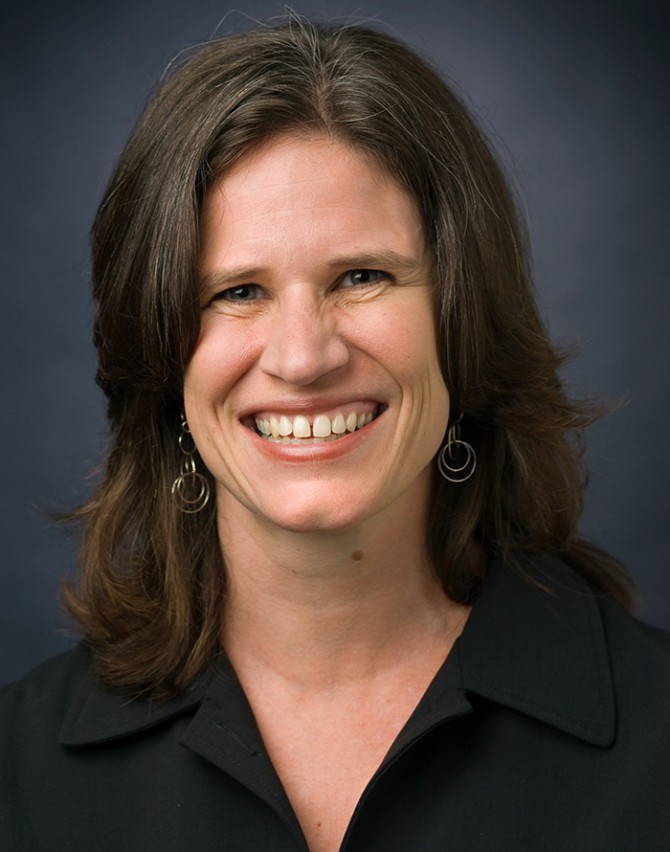New study to look at trends in couples’ earnings after baby
By Stephen D'Angelo
Women’s roles outside the home have changed dramatically over the past four decades. Women have strengthened their attachment to the labor force, moved into male-dominated fields and surpassed men in college graduation rates. However, women’s roles within the home have been slower to change.
A new study, “Trends in Couples’ Work Patterns After Childbirth,” led by Cornell’s Kelly Musick, professor of policy analysis and management, has been awarded $1 million over a three years by the Eunice Kennedy Shriver National Institute of Child Health and Human Development.
“Most women still have primary responsibility at home, and their partners maintain the status of primary earner, particularly after a child is born,” Musick said. “Our research addresses how couples’ negotiations over work and family have changed over time, and what the implications may be for inequalities in earnings within and across families.”
The research will examine within-family inequality, which increases following the birth of a child, when many women pull back at work. Evidence suggests that wives’ lower relative earnings leaves them disadvantaged in household decision-making and more vulnerable to economic hardship in case of divorce. Further, the disproportionate decline in wives’ employment following childbirth appears to have persistent effects on earnings many years later, contributing to the gender wage gap.
It also proposes to look at inequality across families. College-educated women are now more likely to get married and stay married than women with less education, and they are also more likely to marry other college graduates.
“This double advantage suggests rising family income inequality – but only if husbands and wives both remain attached to the labor market,” Musick said. “We look at the key turning point of parenthood to address how changes in husbands’ and wives’ employment responses to parenthood have played into family earnings inequality.”
With a research team including collaborators from the University of Minnesota and the University of Michigan, four decades of successive, short-run panel studies from the U.S. Census Bureau’s Current Population Survey (CPS) will be used to assess changes in husbands’ and wives’ work and earnings following a first birth.
Newly available identifiers from 1976-2015 will be relied upon to link couples longitudinally across the 16 months of their CPS participation, resulting in nearly 500 overlapping panels for hundreds of thousands of couples. Musick said these data are the largest and longest-running longitudinal data source in the U.S. and are virtually untapped for research on family dynamics and change.
Changes in the meaning of marriage, in concert with changes in women’s roles outside the home, underscore the importance of a couple perspective on the persistence of gender gaps in men’s and women’s work and family commitments, Musick said.
Tying together research in family, gender and economic inequality to address questions that are foundational to the functioning of families and, ultimately, to the health and well-being of Americans, the knowledge produced by this project will inform work-family policy initiatives.
“The U.S. lags the world in work-family policy, as one of the only countries, for example, with no federally mandated paid parental leave,” she said. “Weak work-hour regulations and the all-or-nothing structure of many workplaces also push mothers to leave the labor force – and couples toward a traditional male breadwinner family model.”
Musick said understanding the processes that generate inequality is critical.
“Understanding long-run changes in how couples navigate the transition to parenthood can inform policy changes with the broad goal of supporting parents’ in their work and family roles,” she said. “This matters for parents’ health and well-being, as well as for the resources available to support the health and well-being of the next generation.”
Stephen D’Angelo is assistant director of communications at the College of Human Ecology.
Media Contact
Get Cornell news delivered right to your inbox.
Subscribe

